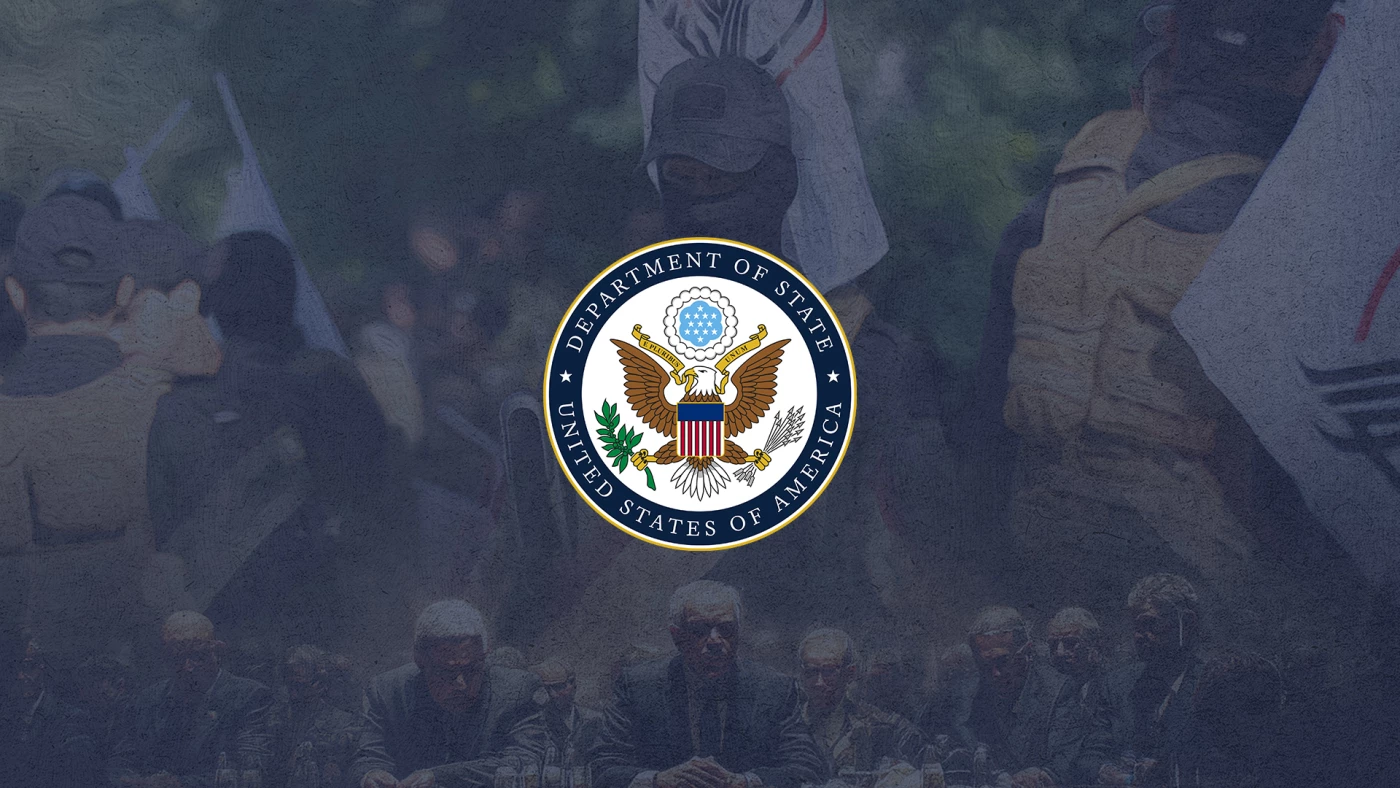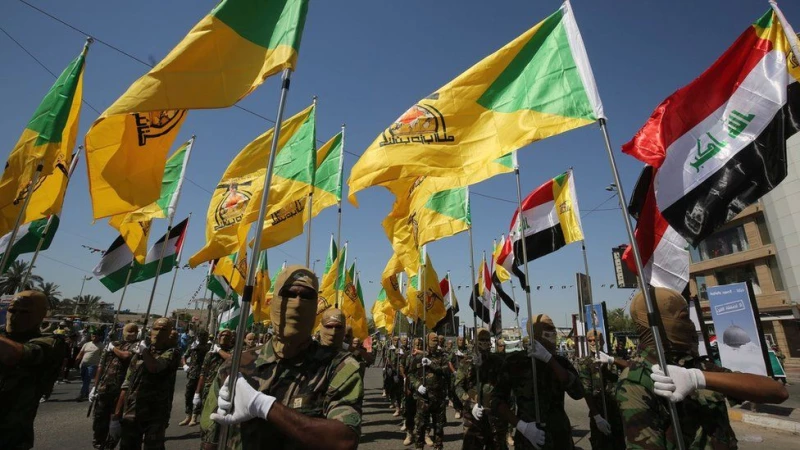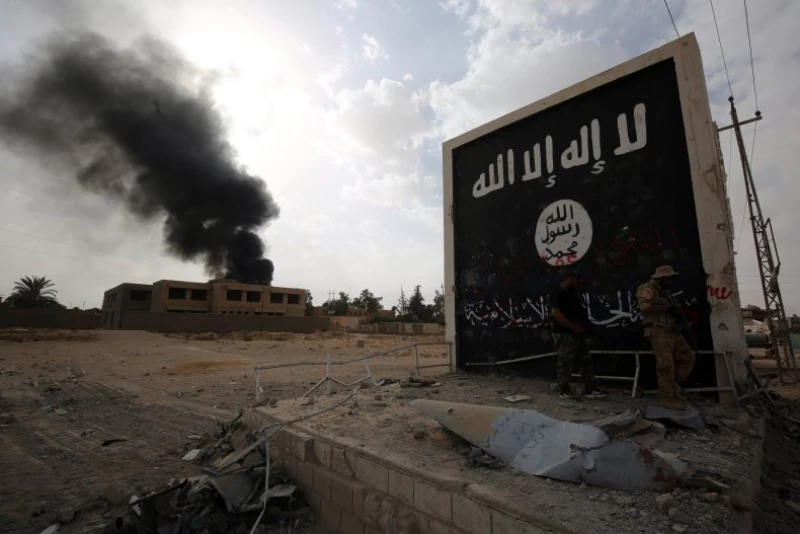ERBIL, Kurdistan Region of Iraq – The United States on Sunday reiterated its strong opposition of attempts to pass a controversial bill relating to the pro-Iran Popular Mobilization Forces (PMF) in the Iraqi parliament, warning of “negative repercussions” for Baghdad.
The Iraqi parliament is currently studying a bill that includes the Service and Retirement Law for the PMF and aims to organize the Popular Mobilization Commission (PMC) similarly to other state security and military agencies.
The US has strongly opposed the bill considering the PMF’s close ties to its rival Iran.
Michael Mitchell, the Arabic spokesperson for the US State Department, told The New Region on Sunday that Washington remains “gravely concerned” about the PMF bill, saying the legislation would “undermine Iraqi sovereignty and will not lead to any positive outcomes for the Iraqi people.”
Many PMF groups are backed by Iran and have frequently clashed with Tehran’s rivals in Iraq, namely the US, over the years.
“There are terrorist groups within the PMF that have participated in attacks on the US military and American and international companies,” said the spokesperson, warning: “This bill will likely have negative repercussions for Iraq, given President [Donald] Trump's maximum pressure campaign against Iran.”
Since returning to the White House in January, US President Trump has adopted increasingly tougher policies against Iran. In February, he signed a national security presidential memorandum, restoring his maximum pressure policy on Iran and detailing a series of new economic measures against the Islamic republic.
The Trump administration has also imposed sanctions on multiple international entities for cooperating with Iran.
Mitchell said that he “cannot speculate” about the possible repercussions of passing the bill, but noted that the US president “has not hesitated to take increasingly stringent stances when it comes to economic sanctions against any entity or state that has illegal relations with Iran.”
In July, the US Treasury Department imposed sanctions on Iraqi-British businessman Salim Ahmed Said, known as “Omid.” He was accused of running an oil-smuggling network for Iran’s Islamic Revolutionary Guard Corps (IRGC), using forged documents and through direct investment in Berth 41 of Khor al-Zubair Port in Basra province.
The Trump administration’s commitment to crippling Iran economically has fueled calls within the US political establishment to sever financial support for Iraqi entities suspected of transferring funds to Iran and impose sanctions on key institutions. Iraqi state-owned Rafidain Bank was at the time singled out due to allegations that it enables money transfers to Iran and Iran-backed armed groups.
“The United States, especially in the second Trump administration, is urging Iraq to be able to exercise control over all Iraqi territory without Iranian influence,” said Mitchell.
“This is undoubtedly the main reason the United States does not support this bill. According to the US government's interpretation, this bill will further entrench Iranian malign influence,” he added.
Iraq and the US in September 2024 announced they had reached an agreement to wrap up the coalition’s military presence in the country by “no later than the end of September 2025” and transition to bilateral security partnerships “in a manner that supports Iraqi forces and maintains pressure on ISIS.”
The State Department spokesperson said that “regardless of the military presence in Iraq, the US will always remain capable of defending US interests and the interests of our regional and international partners. This is a simple but important fact.”
“I have no new policy to present to you regarding the future military situation, but this administration is committed to several aspects: first, supporting the partnership with the Iraqi government; second, combating the resurgence of ISIS; and third, combating the spreading malignant influence of Iran in the region.”
Erbil-Baghdad issues
The Iraqi federal government and the Kurdistan Regional Government (KRG) have been at loggerheads over the management of the Kurdistan Region's oil fields and the disbursement of civil servant salaries for years.
The State Department spokesperson said that Washington views the disagreements between Erbil and Baghdad “with concern.”
“This will negatively impact economic growth, which is something that President Trump is heavily focusing on because we believe that economic growth will reflect positively on stability and, vice versa, stability will also have a significant impact on economic growth.”
“We must overcome these problems in order to achieve our ultimate economic goals,” Mitchell stated.
Erbil and Baghdad struck an agreement in mid-July, whereby the Kurdistan Region agreed to deliver 230,000 barrels of oil per day to Baghdad to be exported through the federal government's State Organization for Marketing of Oil (SOMO), while keeping 50,000 barrels for local consumption. Additionally, the KRG will hand over 120 billion Iraqi dinars in non-oil revenues to Baghdad as its share of the federal treasury, in exchange for salaries.
The Region’s civil servant salaries for the month of May were disbursed in late July, but have yet to be paid for June as of the writing of this article.
Exports of the Kurdistan Region’s oil through the Turkish Ceyhan pipeline were halted in March 2023 after Ankara lost a case against Baghdad in a Paris-based arbitration court. The case accused Ankara of breaching a 1973 agreement by allowing the KRG to start selling oil independently of Baghdad.
The halt in oil exports through the Ceyhan pipeline in recent years has dealt a major blow to both the Kurdistan Region and Iraq, with over 30 billion dollars in lost revenue to date.


 Facebook
Facebook
 LinkedIn
LinkedIn
 Telegram
Telegram
 X
X



